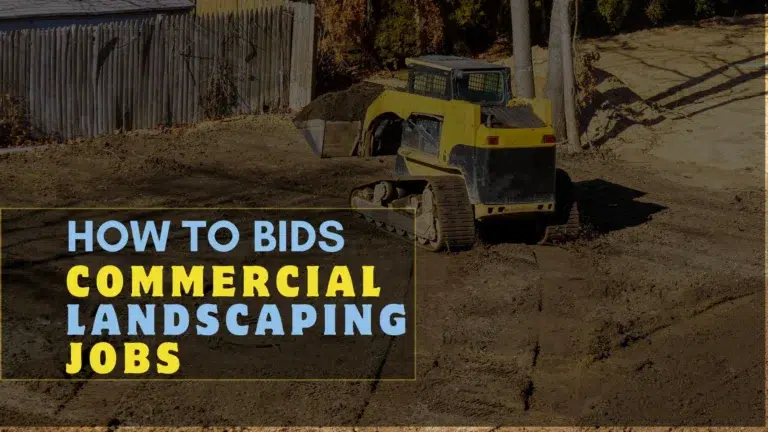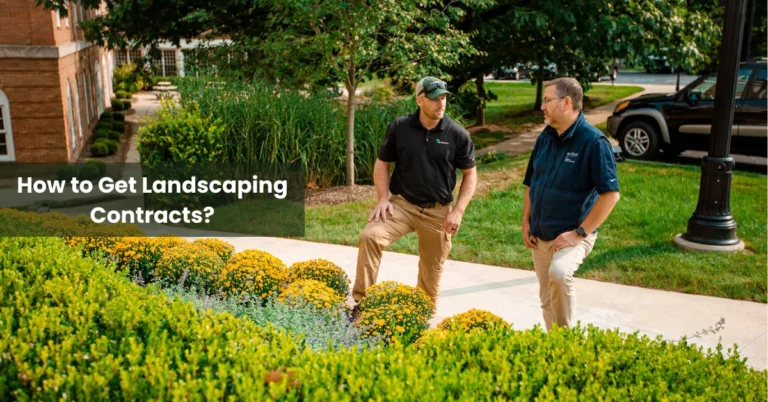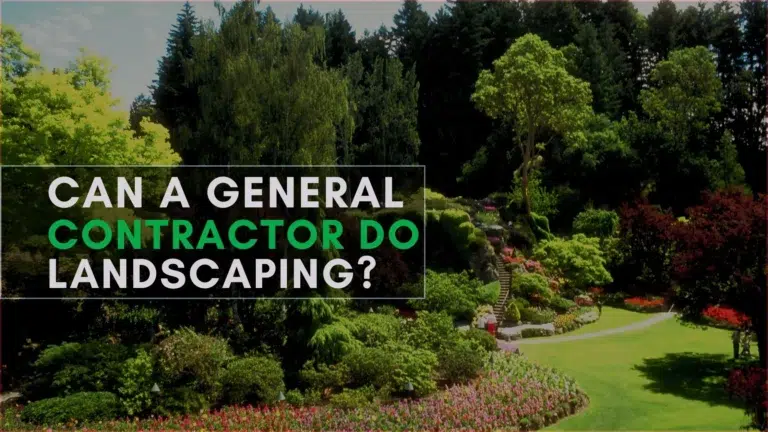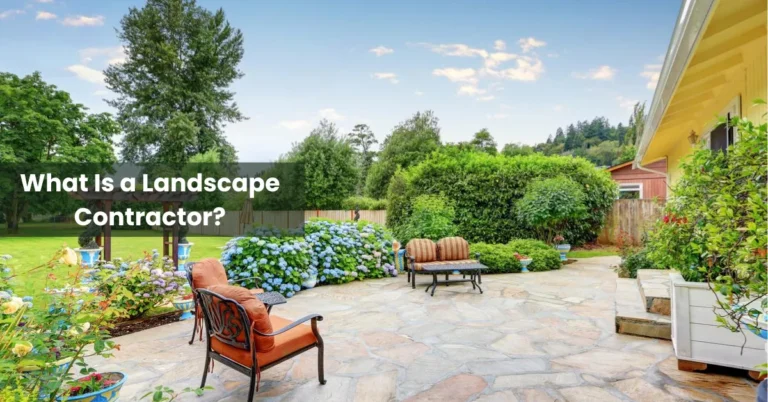How to Find Landscaping Bids?
Getting a perfect landscaping bid is essential for maintaining a landscaping venture. If you are a homeowner seeking to build a garden patio or keep your lawn in decent condition, you must be clear about how much you can afford.
A structural approach will allow you to choose a reliable landscaping contractor that meets your requirements by providing you with proper breakdowns of landscaping estimation and overall project scope in a better way, which can help you get an initial idea and ensure that the determination fits your budget and needs.
Define Your Landscaping Needs
First, reflect your vision and needs when communicating with landscaping contractors. The more clever, the more precise your quote will be. So vast is what your yard can become that it’s easy to get frosted, over-taking a little time upfront to decide on your priorities, which will help narrow things down and set realistic expectations.

Property Size
At this point, you will know with hardscaping what project size you are referring to, such as a patio and retaining wall or an outdoor kitchen, a small front yard, a medium-sized backyard, or a much bigger property. That size will call for the difference in the cost.
Design for The Landscaping Area
Of course, describe your dream with specific features you would want in your landscaping: a low-maintenance garden, newly laid lawn, or water fountains and garden sculptures, to name a few. Now, you need to know at least what you’d like for your result.
Budget
As a homeowner, setting a budget range will help ensure all bids fall within the amount you are willing to spend. Seeking help from experts can assist with strategic landscaping cost evaluations, offering valuable insights to help you make decisions. Such budget limits will also help contractors suggest possible solutions that material recommendations can accompany. You have to be realistic about what you will afford, but at the same time, leave room for contingencies.
Contacting Landscaping Contractors
After identifying your project, research for potential landscaping contractors. A professional contractor knows what will be required and possesses the proper skills for the job. You want someone who understands your vision and can deliver quality work within your budget.
Online Research
They use internet search engines, local business directories, and websites like Yelp and Angie’s List. Other customers’ reviews and ratings are reviewed. Good quality, reliability, and communication characterize the feedback of the contract. Regular has some bad reviews but pays attention to patterns indicating professionalism, quality, or trustworthiness issues.
Referrals and Word of Mouth
Ask family members, friends, or neighbors who have received similar landscaping work. Personal recommendations often bring back the best outcome while finding contractors you can depend on.
Portfolio and Reference
Most landscaping companies advertise previous portfolios through social media or official websites. In addition, ask them to give you some references from previous customers. Talking with a customer, the contractor has served will give you insight into whether you can depend on them as a reliable contractor and how good the quality is.
Verify Credentials
Verify that the landscaper you are about to hire is completely licensed and insured. A licensed contractor can be trusted, as they meet the set requirements and regulations. At the same time, insurance covers either you or the contractor in case accidents or damage happens in the process.
Get Used to Their Communication
Good communication forms part of a successful landscaping project. Check how fast they get back to your questions and how they elaborate on the process of your project, and keep you posted.
Request for And Evaluate Landscaping Bids
Now that you have your list of potential contractors, it’s time to make a phone call to request a bid. You will pay at least three bids to compare parts and services. Now, when you get your bids, read and compare them carefully
Give Detailed Breakdown
The more specific your project is, the tighter the bids will likely be. Give contractors as much detail as possible on measurements or square footage, specifically plants, materials, or hardscaping features you’d like included. Mention challenges you have-e.g., uneven terrain and drainage issues. Give them your desired timeline and when you would like the project completed.
A proper landscape quote should calculate material cost, labor cost, equipment, and other charges. Be cautious of a poorly explained tender in terms of what it encompasses. From this, you will identify any concealment in cost.
- Labor cost: their charge for labor
- Material cost: plants, stone, soil, mulch, etc.
- Other costs: delivery, disposal, and extra expenses.
Scope of Work and Site Visits
Make sure each describes all the work you want. If a contractor needs to include some tasks, like clean-up or irrigation installation, ask why that is omitted. The scope needs to live with what you agreed to. Don’t accept estimates by phone or email. It will give them a chance to walk the area, measure it, and get a better feel for the scope of your project.
Material Selection and Schedule
Compare the material selected by each of your contractors. Look for details on the bid about materials and plants the contractor intends to use. This is highly important where, like garden design or hardscaping, the quality of these materials and plants can vary significantly in cost.
Note whether each contactor provides any timeline. If a promise to complete it in less time is made, ask how they propose doing it. A shorter duration suggests it’ll rush to completion to meet its last date, which could come at the expense of quality. An extended period could allow them to inspect for the details and deliver a quality product.
Availability and Experience
Constcatore has more questions about your property or special needs. Make him answer back right away. This helps in narrowing down the bids. Based on the contractor’s experience with the type of work involved, for example, if your project requires hardscaping or even detailed garden designs, you would want to work with a landscaper with experience in such projects.

Negotiation and Contract Finalization
For all these quotations, choose a landscaping contractor, which is the time to present and confirm. Price is critical, but that alone cannot be a basis.
Quality vs. Cost
The lowest quotation could offer better. When the quotation is considerably cheaper than the rest, they are offering inferior artistry or low-quality material. And the highest quote will never ensure standard quality
Terms of Payments and Communication
Communicate with the constructor at every single step to keep them updated about the project and enable them to understand your vision so they can work to turn it into reality.
Collate the payment terms, such as deposits upfront, progress payments, and final payments when the work is complete. Never pay for the whole project upfront, no matter what.
Contract Clauses
Add conditions like warranties, guarantees, or a contingency plan for atypical delays. A reliable contract schedule provides a warranty on the work done, especially on plants or installation.
Conclusion
Getting landscaping estimates does not have to be laborious and confusing. Defining the scope of your project and researching potential contractors who will seriously consider the proposals you receive and compare them accordingly will ensure that you get the contractor you want. Why it is essential to select the right contractor. The best contractor is neither the one with the lowest price nor offering the best value, quality, and service. So, take your time, ask questions, and trust your instincts. It will set you up for an incredibly successful, stress-free landscaping project that enhances your outdoor space and gives you lasting satisfaction in the whole process.















